Here you may view our current press releases. We always appreciate getting a copy of your publication for our records.
Press distribution list
Receive our latest news regularly by email. Register now.
Here you may view our current press releases. We always appreciate getting a copy of your publication for our records.
Receive our latest news regularly by email. Register now.

Although menopause – also known as perimenopause – can significantly impair women's well-being and performance, medical education and support have often been inadequate to date. As part of the joint project “PETRA: AI-supported, educational therapy support for perimenopause,” researchers are now developing an AI-supported app that offers personalized information to affected women, thereby helping to improve their symptoms. In addition to the Fraunhofer Institute for Experimental Software Engineering IESE as consortium leader, four partners are participating in the project: the digital health startup FEMNA, the junior professorship for health and e-health at Ruhr University Bochum, the social research center of the Faculty of Social Sciences at Dortmund Technical University, and the Berlin Institute of Health at Charité. The project for gender-equitable medicine is being funded by the Federal Ministry of Research, Technology, and Space with around two million euros over a project period of three years.
more info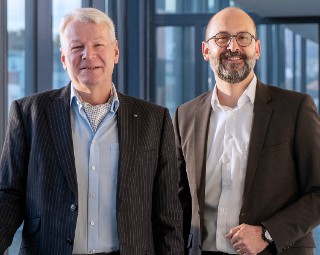
On November 1, 2025, Jörg Dörr joined the institute management team at the Fraunhofer Institute for Experimental Software Engineering IESE. Together with the current director Peter Liggesmeyer, he will co-lead the institute, which specializes in efficient software development. They will share responsibilities: Jörg Dörr will serve as scientific director while Peter Liggesmeyer will act as managing director.
more info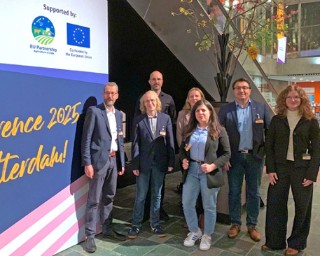
From October 21 to 22, Rotterdam hosted Synergy Days, the leading conference for digital innovation in the European agricultural and food sector. This was the first time that the European Common European Agricultural Data Space (CEADS) project was presented to a broad international audience.
more info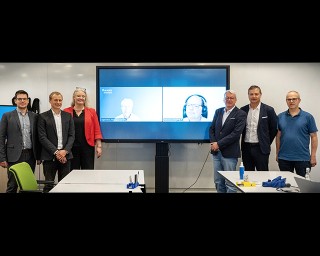
On September 9, the Fraunhofer Institute for Experimental Software Engineering IESE hosted a hybrid workshop on the topic of Autonomik. This term refers to a new interdisciplinary field that not only deals with the technical fundamentals and methods for autonomous systems, but also integrates social, economic, and legal issues. The goal is to gain a comprehensive understanding of the complex effects of autonomous technologies and to shape them responsibly. The need for this interdisciplinary field arises from the increasing importance of autonomous systems. Interdisciplinary cooperation between individual disciplines (computer science, social sciences, law, electrical engineering, mechanical engineering, economics, structural sciences) is essential for their development and implementation, but is increasingly proving to be a bottleneck. Autonomik allows autonomous systems to be viewed, developed, and deployed holistically, taking into account the obstacles to implementing visions of the future. Since these obstacles are not purely technical in nature, Autonomik is a cross-disciplinary field. It forms the basis for the development and operation of autonomous systems.
more info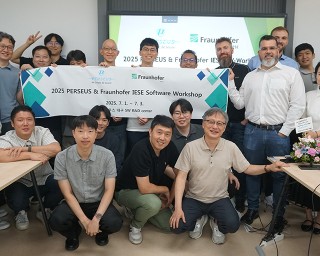
The Fraunhofer Institute for Experimental Software Engineering IESE and South Korean company Perseus Co., Ltd. have intensified their strategic partnership in the field of software-defined vehicles (SDV). The aim of the collaboration is to further develop digital twin technologies and to develop innovative solutions for simulation, virtualization, and virtual verification and validation in the automotive industry.
more info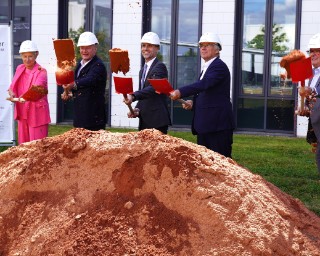
At the groundbreaking ceremony, Minister of Science Hoch, Mayor Kimmel, and Fraunhofer President Hanselka emphasized the national and international significance of Fraunhofer IESE's research achievements.
more info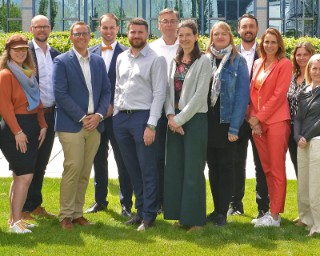
CAR-T therapy is a state-of-the-art cancer treatment in which cancer cells are recognized and destroyed with the help of the patient's own immune cells. The therapy is highly effective, but also involves a complex, lengthy and often manual production process that can currently only be carried out at a limited number of sites. The new EASYGEN research project is tackling this problem: Under the consortium leadership of Fresenius SE & Co. KGaA, a consortium consisting of 18 partners has joined forces with the aim of developing a fully automated, hospital-based platform that can be used to produce personalized CAR-T cell therapies within a few days and on site at the hospital.
more info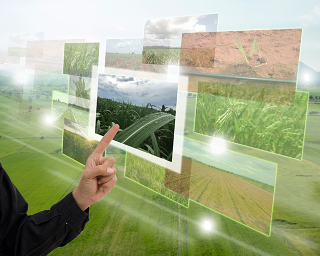
The Common European Agricultural Data Space (CEADS), an initiative to create a common European agricultural data space, was launched on April 1, 2025. The 36 project partners from 15 countries came together for a three-day kick-off event in Ghent (Belgium) at the beginning of May. The project, which is funded by the European Commission through the “Digital Europe” program, is coordinated by the Flanders Research Institute for Agriculture, Fisheries and Food (ILVO). Over the next three years, the partners will work on enabling the secure, sovereign and trustworthy use of data across the entire agricultural and food value chain, including public administration. With the start of the project, the Fraunhofer Institute for Experimental Software Engineering IESE is also taking on a central role as a technology partner.
more info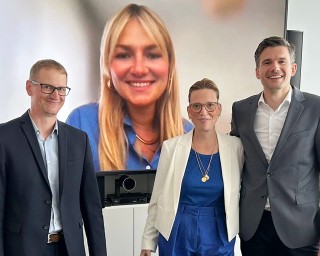
The Fraunhofer Institute for Experimental Software Engineering IESE has founded Smartes Land GmbH together with ÖRAG/Deutsche Assistance-Gruppe and Versicherungskammer Bayern. This new company has set itself the goal of shaping digitalization in both rural and urban areas in a sustainable manner. The platform solutions DorfFunk and BayernFunk from the research project “Digital Villages” initiated by Fraunhofer IESE are now being transferred to permanent operation and will be further developed and operated under one roof. Fraunhofer IESE will continue to support the further development on the technical side as a partner, while Deutsche Assistance and Versicherungskammer Bayern will be responsible for operational management and sales.
more info
The digitalization of the manufacturing industry is progressing. Secure and efficient data rooms play a central role in this. The Fraunhofer Institute for Experimental Software Engineering IESE is presenting a turnkey solution at Hannover Messe 2025: With the AAS Dataspace for Everybody, companies can realize Digital Twins, CO2 calculations and Digital Product Passports. From March 31 to April 4, 2025, visitors to the joint stand of the Fraunhofer-Gesellschaft (Hall 2, Stand B24) will learn how companies can develop digital twins and share them in the data room. Following successful evaluation in the prototype environment, it is now also possible to migrate seamlessly to a productive environment with a service level agreement. There, the data room is guaranteed to be highly available.
more info